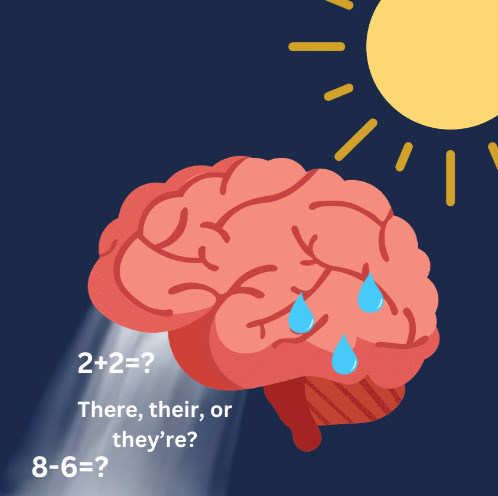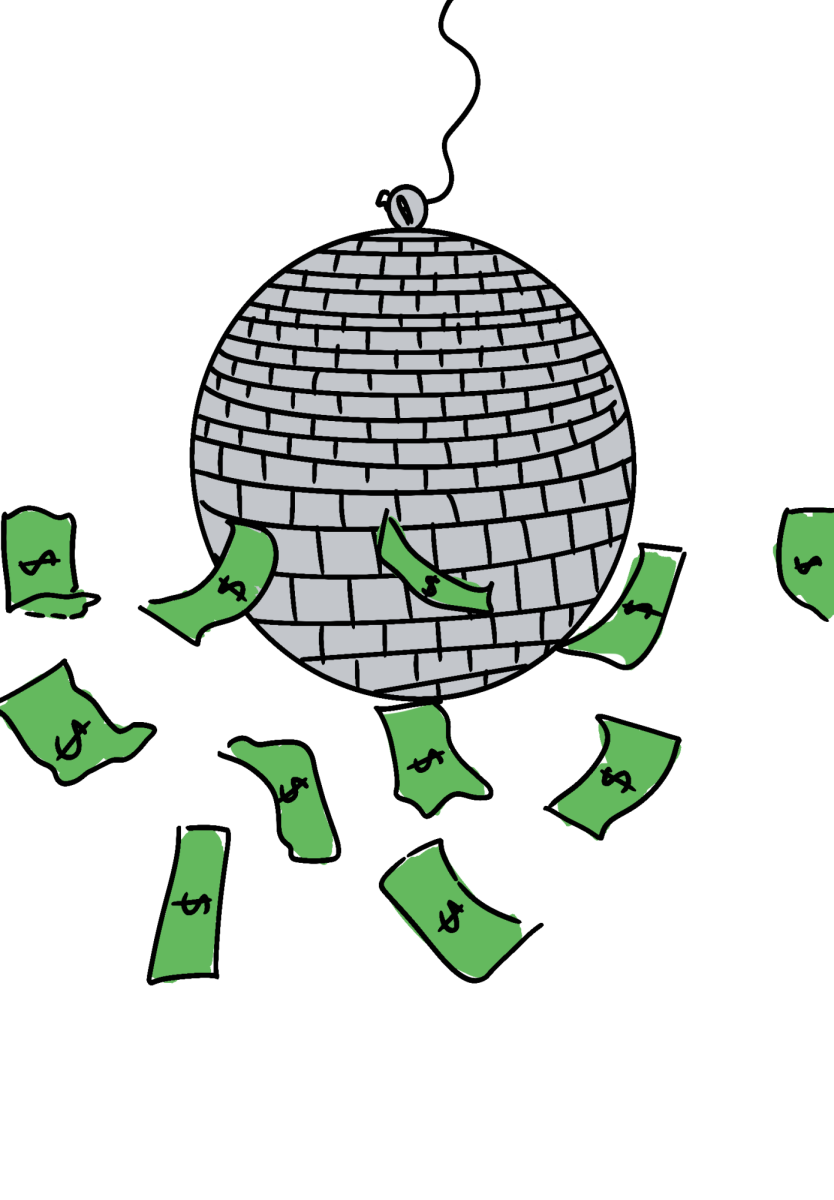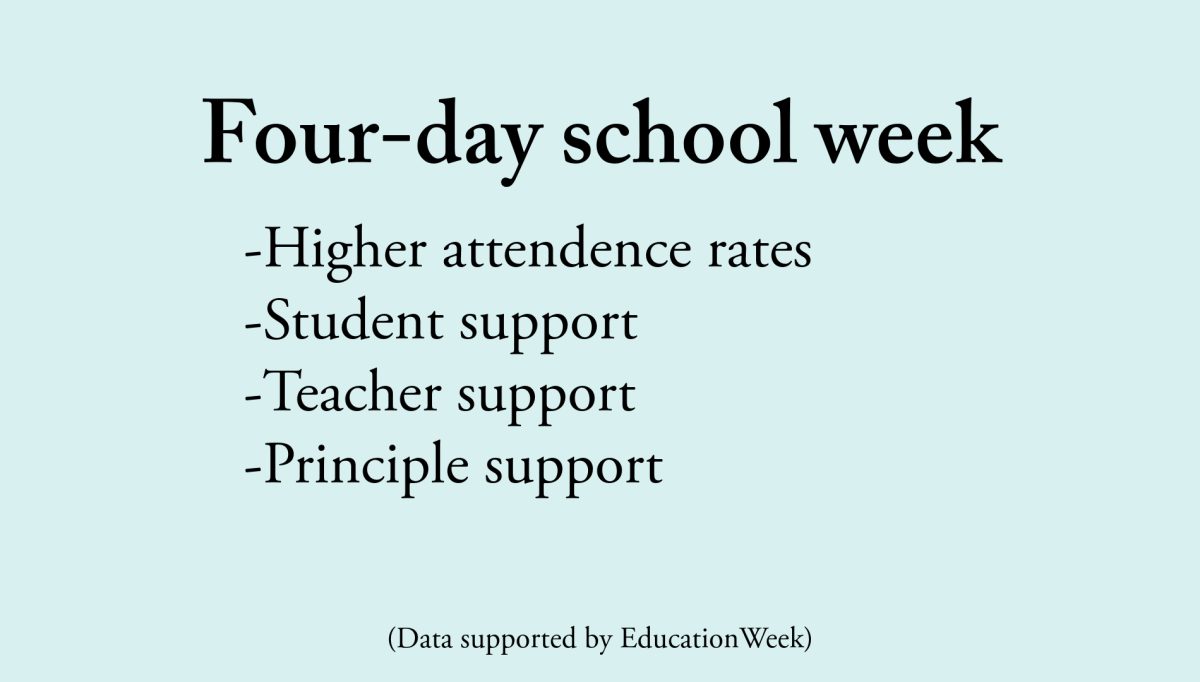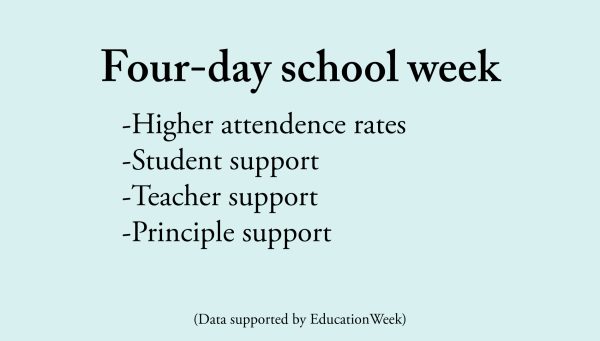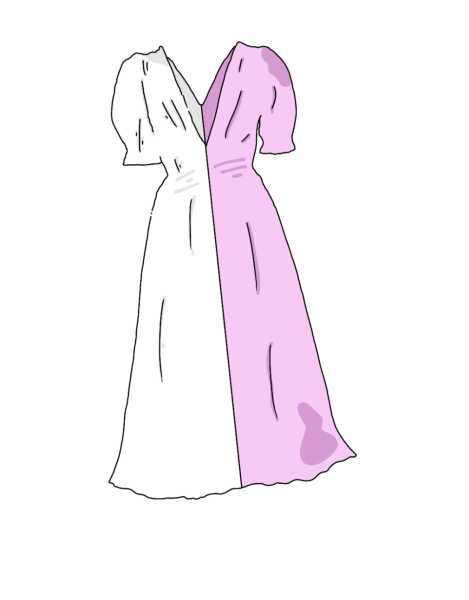Cable TV is no longer necessary
April 20, 2020
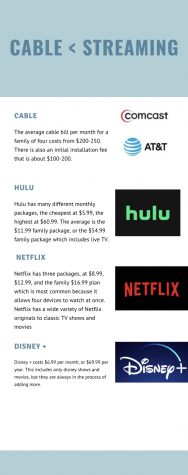
Netflix, Hulu, Prime Video, Disney +, these are just some of the streaming services that have seemingly taken over the marketplace. Cable TV has gone from a household staple to unnecessary in a matter of 10 years. This is due to the reliability of streaming services, the cost-effectiveness of it and also little things, like fewer commercials and watching whenever you want.
Cable TV relies on satellites that transmit radio frequencies through cables and wires that feed into your TV. This method works well, and it isn’t bad for the consumer. One of the flaws related to cable TV is the dodginess of it. Some satellites go out frequently during rain storms, or other weather-related storms. When something like this happens there is nothing the owner can do but wait til connection is re-established. And if the satellite or cables are damaged somehow, the owner must call the company and pay for the repair, it is not a fix that the average homeowner is capable of making by themselves.
Whereas a digital application has no maintenance related problems even possible. If there ever was an issue it would most likely be due to something else, like wifi for example. In the rare instance that there would be an issue with the streaming service, the owner would simply call a support number to help fix, free of charge.
The price for installing and paying monthly bills for your cable TV system is much steeper than multiple streaming services. Decisiondata.org said that the average household cable package is approximately $217.42 a month. To put that in perspective, a Netflix family plan is $16.99 a month and a Hulu family plan is $11.99 a month. Not only that, but Hulu has a live TV package including popular channels such as ESPN, CBS, etc, rendering it equivalent to a basic cable package. This package contains all shows and movies on Hulu and the live TV offered, and it’s only $54.99 a month. So as you can see, streaming services are much cheaper than cable. Even though most people will have multiple services, just to provide a variety of options, it is still cheaper than most cable bills.
People don’t like watching commercials, waiting for their favorite show to be on, people like to fast forward and backwards to certain moments. Cable TV limits watchers from all of these things, it limits people and is inefficient as a whole. Consumers would much rather watch what they want, when they want without disruptions. There is less risk in getting rid of cable and the consumer is also saving money. So don’t be surprised if cable becomes obsolete as we progress into the future.












